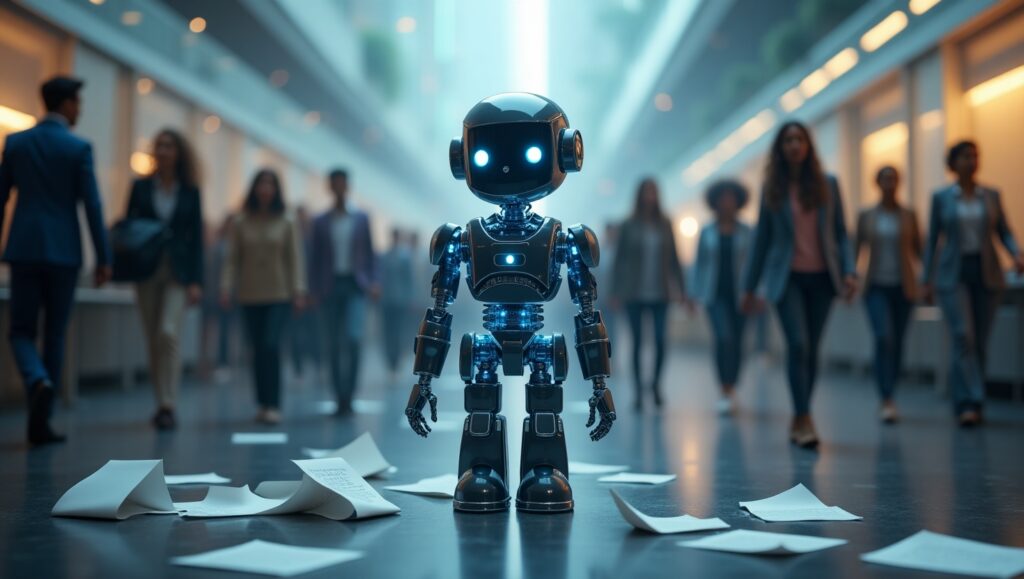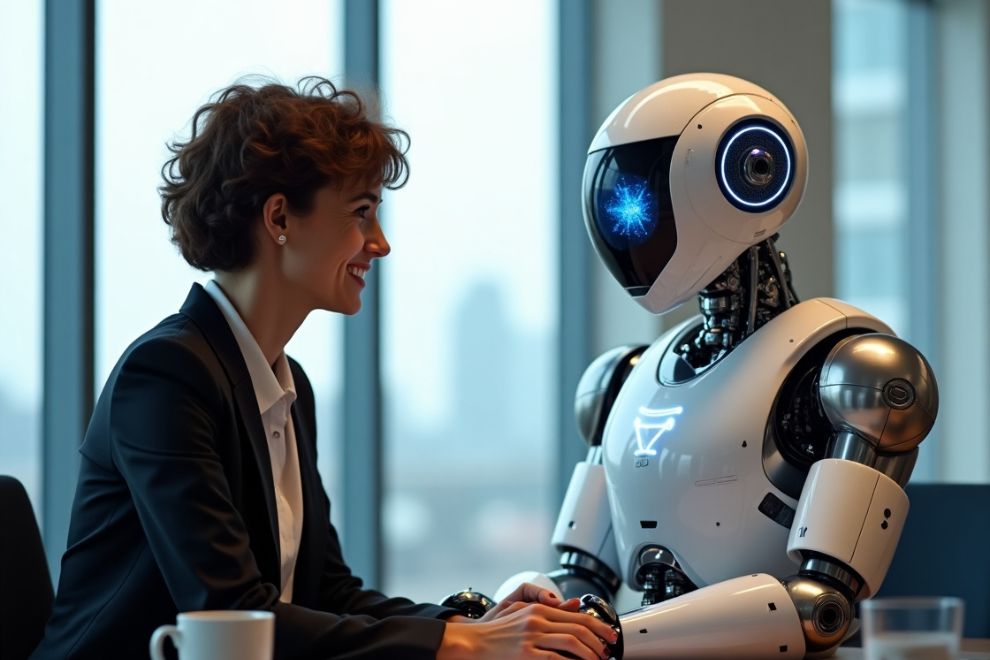Artificial Intelligence (AI) is rapidly transforming industries, driving innovation, and reshaping the way we live and work. As AI technologies evolve, there is growing concern about how these advancements will affect job markets globally. From automating routine tasks to enhancing decision-making, AI is having a profound impact on employment. While AI promises efficiency and growth in many sectors, it also raises questions about job displacement, workforce adaptation, and the future of work itself. This article explores the potential effects of AI on job markets, highlighting both the opportunities and challenges that lie ahead.
Artificial Intelligence and Its Impact on Job Markets: Transforming Employment, Automation, and Workforce Dynamics
AI refers to the simulation of human intelligence in machines that are programmed to think, learn, and perform tasks traditionally carried out by humans. These tasks include things like recognizing speech, processing language, solving problems, and making decisions. Machine learning, deep learning, and natural language processing (NLP) are all subsets of AI that are increasingly being used to automate various functions in industries such as healthcare, finance, retail, manufacturing, and even customer service.
The integration of AI into business operations is already changing the landscape of the workforce. While AI can perform tasks that were once time-consuming and error-prone, it also raises significant questions about the future of jobs. Will AI replace human workers, or will it enhance their capabilities and create new job opportunities?
Job Creation vs. Job Displacement
Job Displacement: Automation and Redundancy
One of the most frequently cited concerns about AI is its potential to replace human jobs, particularly in sectors that rely heavily on repetitive tasks. Automation powered by AI has the potential to render many traditional roles redundant. For example, in manufacturing, robots are already performing tasks like assembly line work, quality control, and packaging. Similarly, in sectors like customer service, AI-powered chatbots and virtual assistants are taking over tasks that were previously performed by human agents.
Jobs in administrative support, data entry, and telemarketing are also at risk due to automation. These jobs often involve repetitive, routine tasks that AI and machine learning algorithms can perform faster and more accurately than humans. As a result, workers in these fields may face job loss or a reduction in opportunities.
Job Creation: New Roles and Industries
While some jobs are at risk of being automated, AI is also creating new job opportunities. The rise of AI has led to a demand for new skills and expertise. Roles such as AI specialists, data scientists, machine learning engineers, and AI ethicists are increasingly in high demand. These jobs require specialized training and education, offering opportunities for individuals to transition into the AI-driven workforce.
Additionally, industries that incorporate AI are experiencing growth, leading to the creation of new roles. For example, the healthcare industry is utilizing AI for diagnostics, personalized medicine, and drug discovery. This has led to the development of new positions in healthcare technology and data analytics, all of which require human expertise to interpret AI findings and ensure ethical applications.
Moreover, as businesses integrate AI into their operations, there is an increasing need for workers to oversee and maintain these systems. This creates a growing demand for professionals who can manage AI systems, ensuring that they function as intended and make ethical decisions.
Upskilling and Reskilling the Workforce
As AI changes the landscape of job markets, there is a growing need for upskilling and reskilling the workforce. Workers whose jobs are at risk of being automated need to acquire new skills that align with the demands of the AI-driven economy. Governments, educational institutions, and businesses are focusing on retraining workers to equip them with the skills necessary to thrive in this new landscape.
Upskilling programs can help workers transition into new roles within the AI ecosystem. For example, workers in customer service can be trained in AI management and data analysis, allowing them to move into higher-level roles that require a deeper understanding of AI technologies. Similarly, professionals in fields like accounting and finance can learn how to leverage AI for data-driven decision-making and predictive analysis.
Sectors Most Affected by AI
AI is making an impact across virtually all industries, but certain sectors are experiencing more pronounced changes due to automation and AI integration.

1. Manufacturing and Production
In manufacturing, AI-powered robots and automation systems are increasingly being used to handle repetitive and labor-intensive tasks such as assembly, inspection, and packaging. This has significantly reduced the need for manual labor in factories, leading to job displacement in low-skill production roles. However, it has also created opportunities for skilled workers in areas like robotics programming, maintenance, and AI system management.
2. Retail and E-commerce
AI is revolutionizing retail and e-commerce by optimizing inventory management, enhancing customer experiences through chatbots and personalized recommendations, and streamlining supply chains. While AI-driven automation has eliminated some roles in customer service and warehousing, it has also created new opportunities in logistics, data analytics, and digital marketing.
3. Healthcare
AI is transforming the healthcare industry by improving diagnostics, personalizing treatment, and facilitating drug discovery. Medical professionals can use AI tools to analyze large datasets, detect patterns, and make more accurate predictions. This has led to the creation of new roles in medical AI, data science, and healthcare analytics, while also improving patient outcomes and reducing costs.
4. Finance
The finance industry is one of the early adopters of AI technologies, using them for tasks such as algorithmic trading, risk management, fraud detection, and customer service. While certain administrative roles are at risk of being automated, AI also offers opportunities for professionals skilled in financial data analysis, machine learning, and cybersecurity.
The Future of Work: AI and Human Collaboration
The future of work will not be a binary choice between humans and machines. Instead, AI is likely to complement human skills, enabling workers to focus on higher-level tasks that require creativity, critical thinking, and emotional intelligence—qualities that AI currently cannot replicate. For instance, while AI can handle data processing and repetitive tasks, humans will still be needed to make complex decisions, interpret AI insights, and provide customer-centric solutions.
In sectors like healthcare, education, and the arts, human judgment and empathy are essential to delivering quality services. AI will augment these roles, helping professionals make better-informed decisions and improve efficiency, but it is unlikely to replace them entirely.
Artificial Intelligence is reshaping the job market, presenting both opportunities and challenges. While automation poses a risk to certain jobs, it also creates new roles in emerging fields like data science, AI development, and digital healthcare. The key to navigating this shift lies in reskilling the workforce and fostering collaboration between humans and machines. By embracing AI technologies and preparing workers for the future, societies can ensure that the AI revolution drives economic growth while creating more sustainable, fulfilling careers for people around the world.
As AI continues to advance, it is crucial for governments, businesses, and workers to work together to build a future where both technology and human talent thrive side by side.


